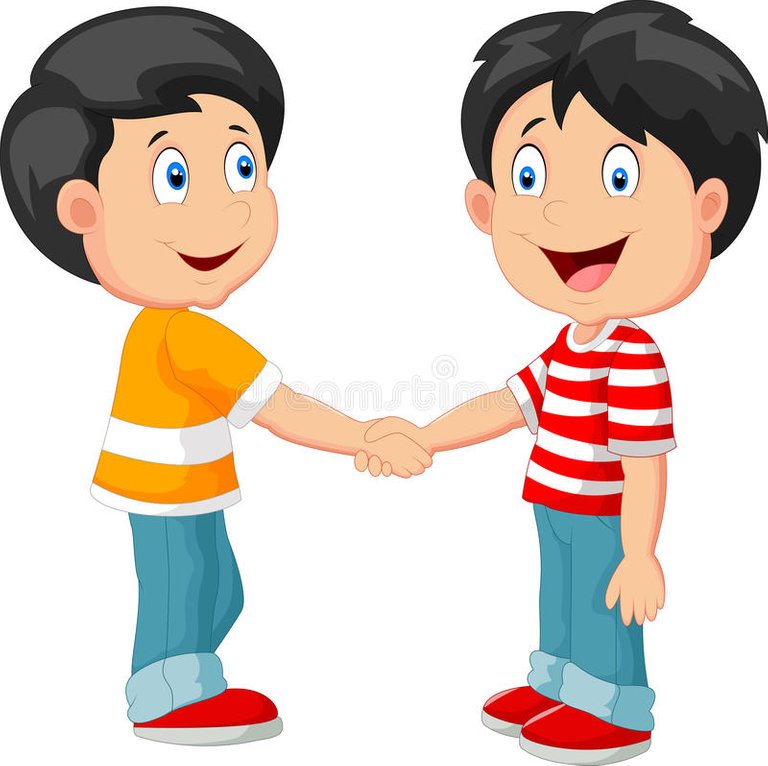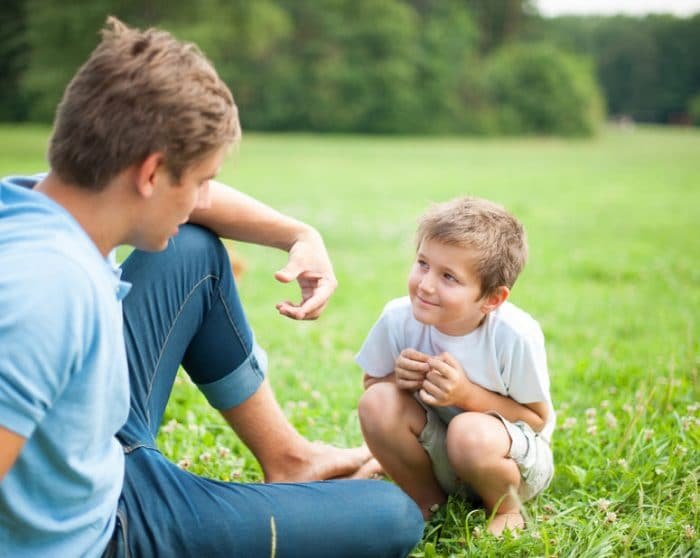
The children fight with each other. Through fights between children, a boy learns to recognize himself and others, discovers the sense of limit, learns to make mistakes.
Dealing with peers is part of the difficult task of growing up. Learning means that one is not alone in the world, that sometimes it is necessary to step aside and make way, or that you have to fight to assert your opinion and your own will.
Modern psychology considers conflicts between children as organic contributions for personal development and the acquisition of autonomy and developed relational capacities, based on personal achievements and not on prohibition.

1. At what age do children start fighting?
It is around 2 years that children begin to be interested in their peers when they go to the nursery, to school and where they must learn to live in a group, accept rules and share. Before that, your world is family, kindness, protection, security.
In this context, they get used to the presence of strangers and begin to understand that the world does not revolve around them; Often, to have something, you have to fight against others, affirming your personality, your ideas, your desires. They must also realize that, sometimes, it is necessary to step aside. This also means getting used to accepting defeat.


2. Should we intervene in the fights of the children?
It is very important to leave children the opportunity and the right to litigate. A child who has not had the opportunity to litigate can easily become an adult with difficulties to recognize the difference between violence and the legitimate need to express their opinions, to explain situations of conflict, to address problems in a constructive relationship.

The intervention of adults blocks children in their problems, in a certain sense. This mechanism is inevitable and is part of the evolutionary phase of the children, and helps them to learn to fend for themselves; a child who is used to running in search of mom and dad when something unpleasant happens, such as the argument with a partner, a child is basically insecure, incapable.

3. What attitude to assume?
What should we do when children fight? The best attitude to assume, then, in these cases is indifference. It may seem cruel and false, but that's the way it is. At home, afterwards, away from your peers or the friend with whom the child has had a fight, you ask him to explain his actions.


Teach your children not to be violent, explain that there are other ways to express your opinion. Thank you very much for your attention and do not forget to follow @steemiteducation.

Source
Direct translation without giving credit to the original author is Plagiarism.
Repeated plagiarism is considered spam. Spam is discouraged by the community and may result in action from the cheetah bot.
More information on Image Plagiarism
If you believe this comment is in error, please contact us in #disputes on Discord
Please note that direct translations including attribution or source with no original content is also considered spam.
Peace, Abundance, and Liberty Network (PALnet) Discord Channel. It's a completely public and open space to all members of the Steemit community who voluntarily choose to be there.Congratulations! This post has been upvoted from the communal account, @minnowsupport, by sequini from the Minnow Support Project. It's a witness project run by aggroed, ausbitbank, teamsteem, theprophet0, someguy123, neoxian, followbtcnews, and netuoso. The goal is to help Steemit grow by supporting Minnows. Please find us at the
If you would like to delegate to the Minnow Support Project you can do so by clicking on the following links: 50SP, 100SP, 250SP, 500SP, 1000SP, 5000SP.
Be sure to leave at least 50SP undelegated on your account.
Thanks!
This is a very informative piece and I love the points you put forth in the post. If you don't mind, I think you should be checking your language and grammar before posting, nonetheless, its a very informative post.
Originally I speak Spanish, I am very happy to know that soon you will be able to evaluate my content in my original language thanks to a new project of steemiteducation